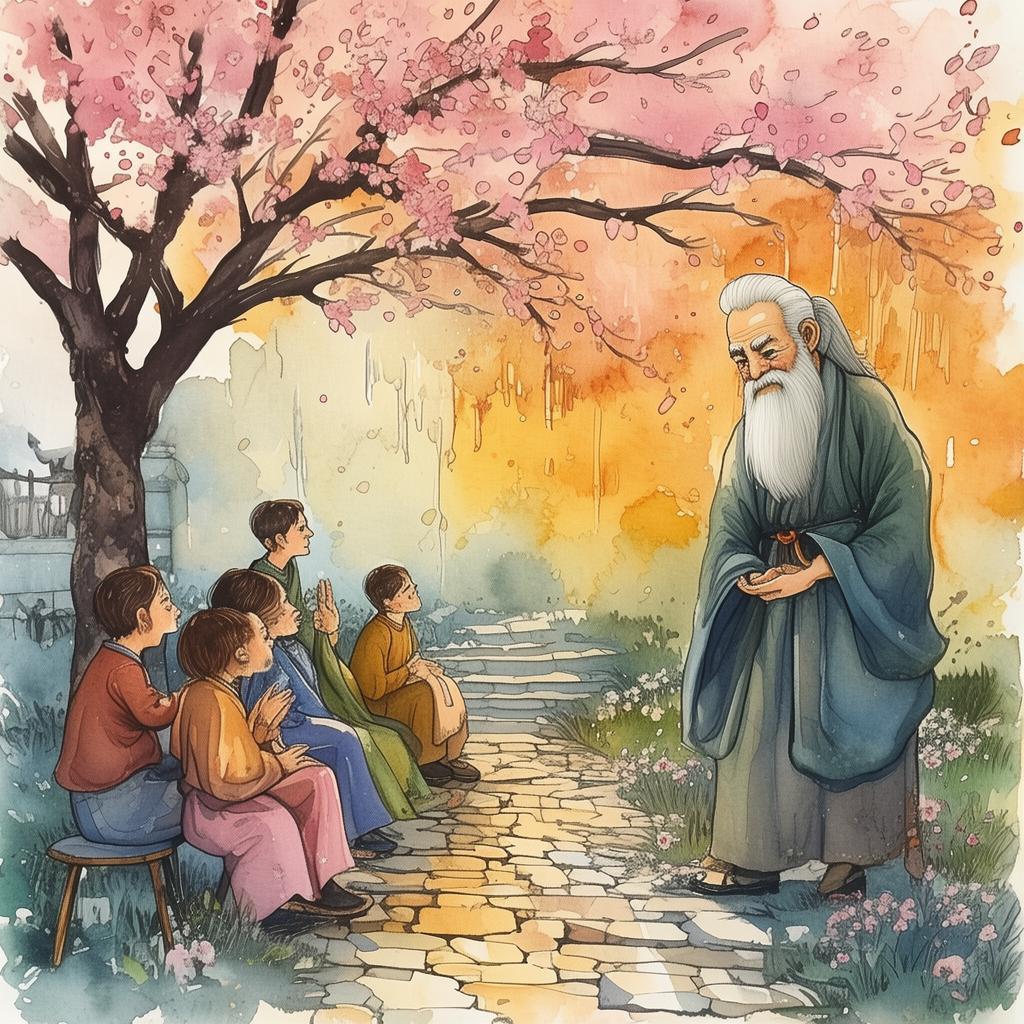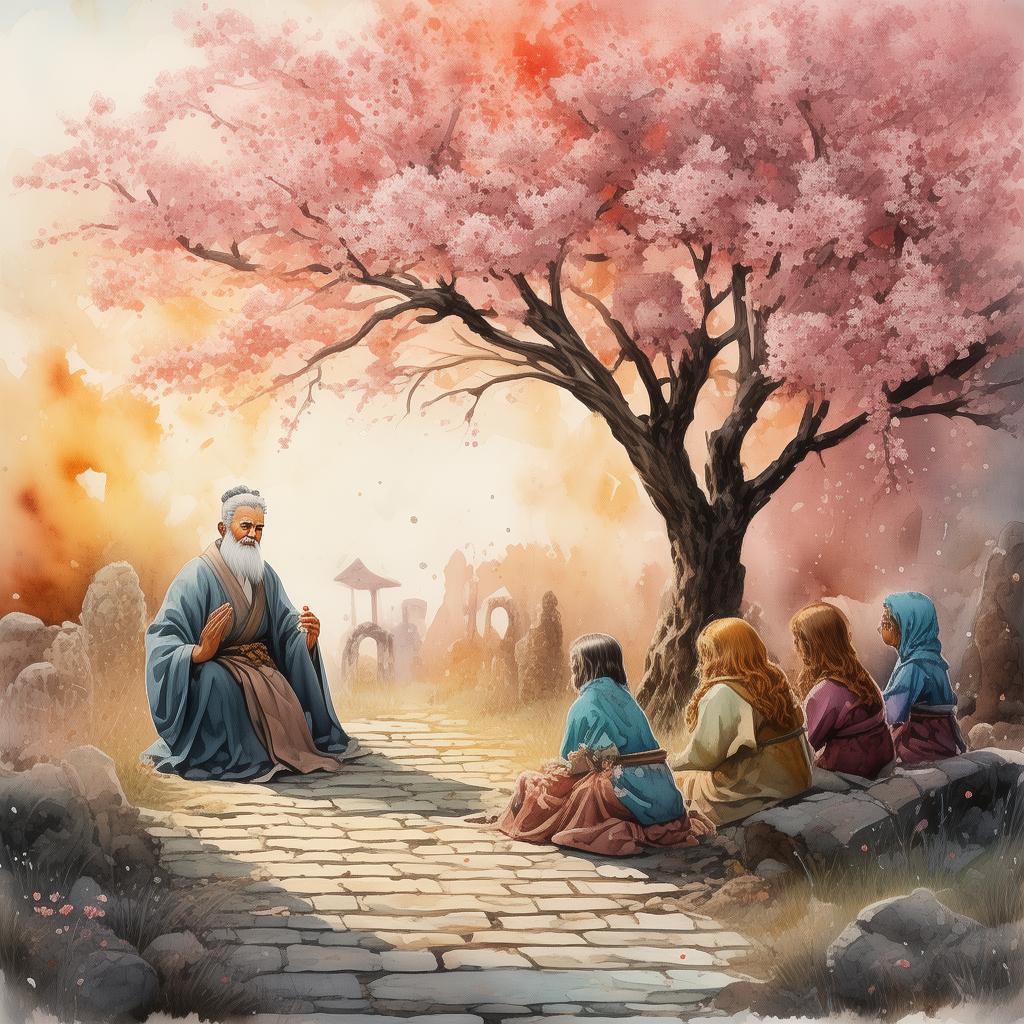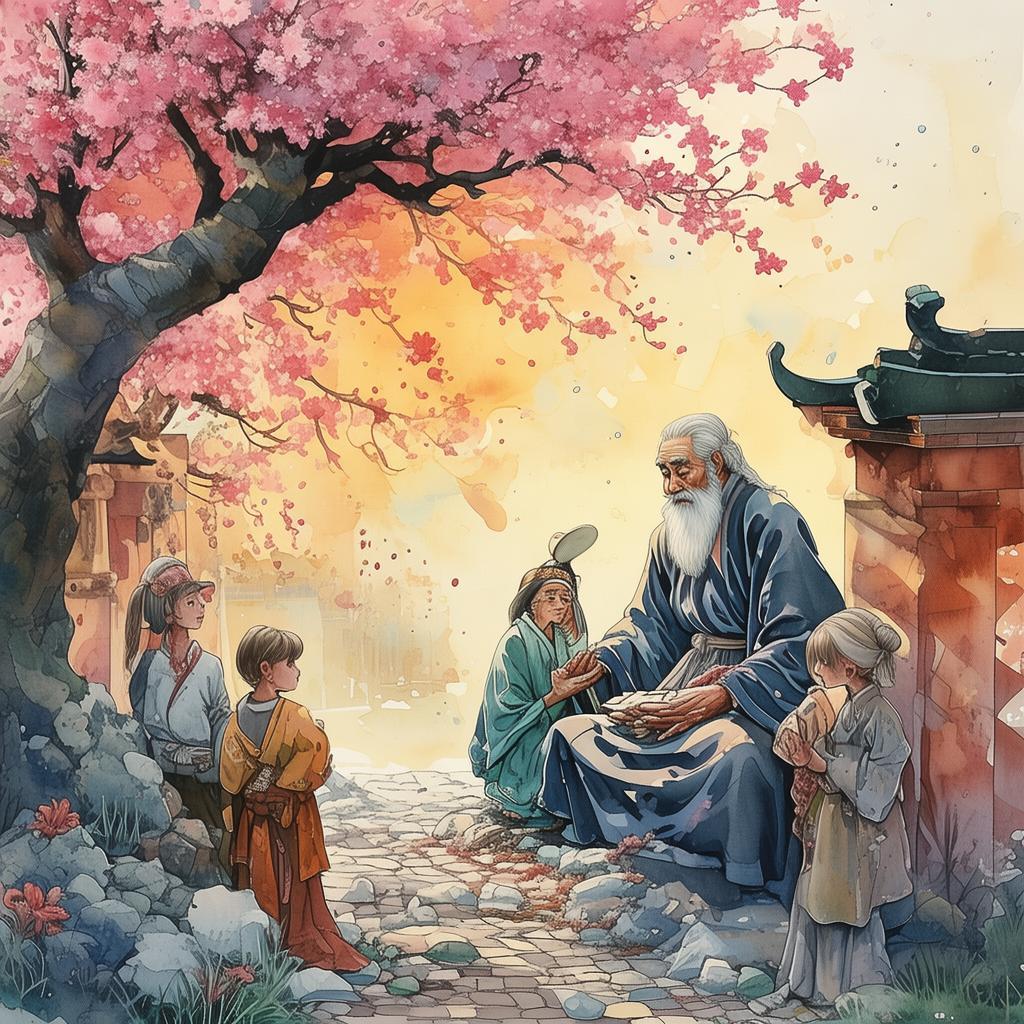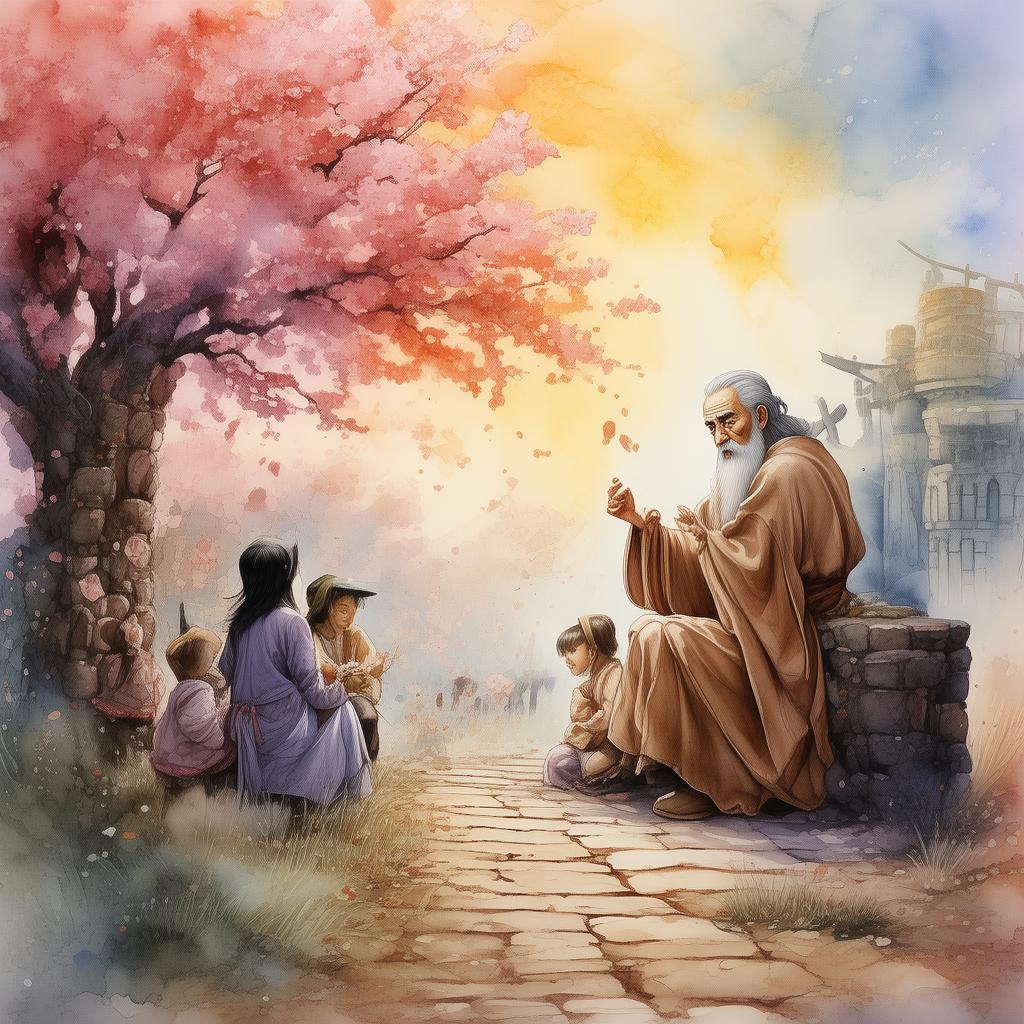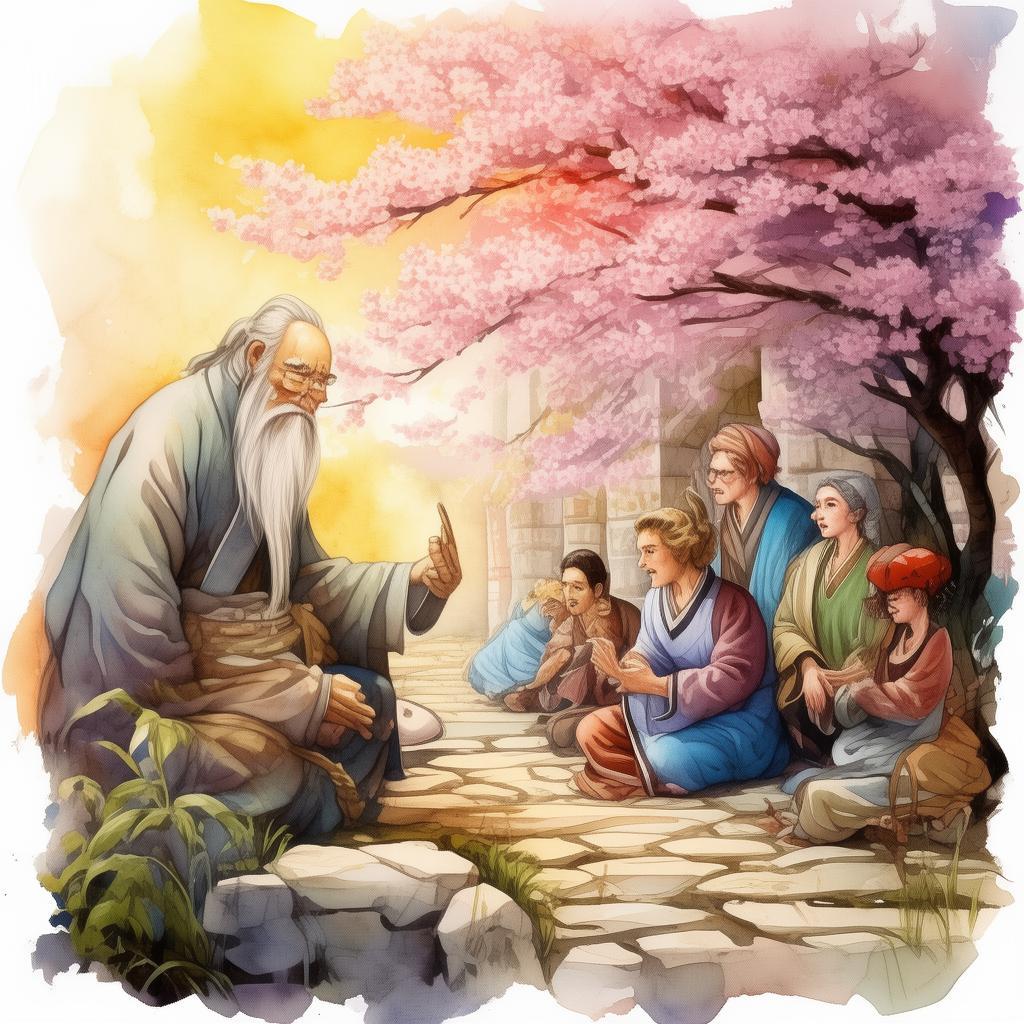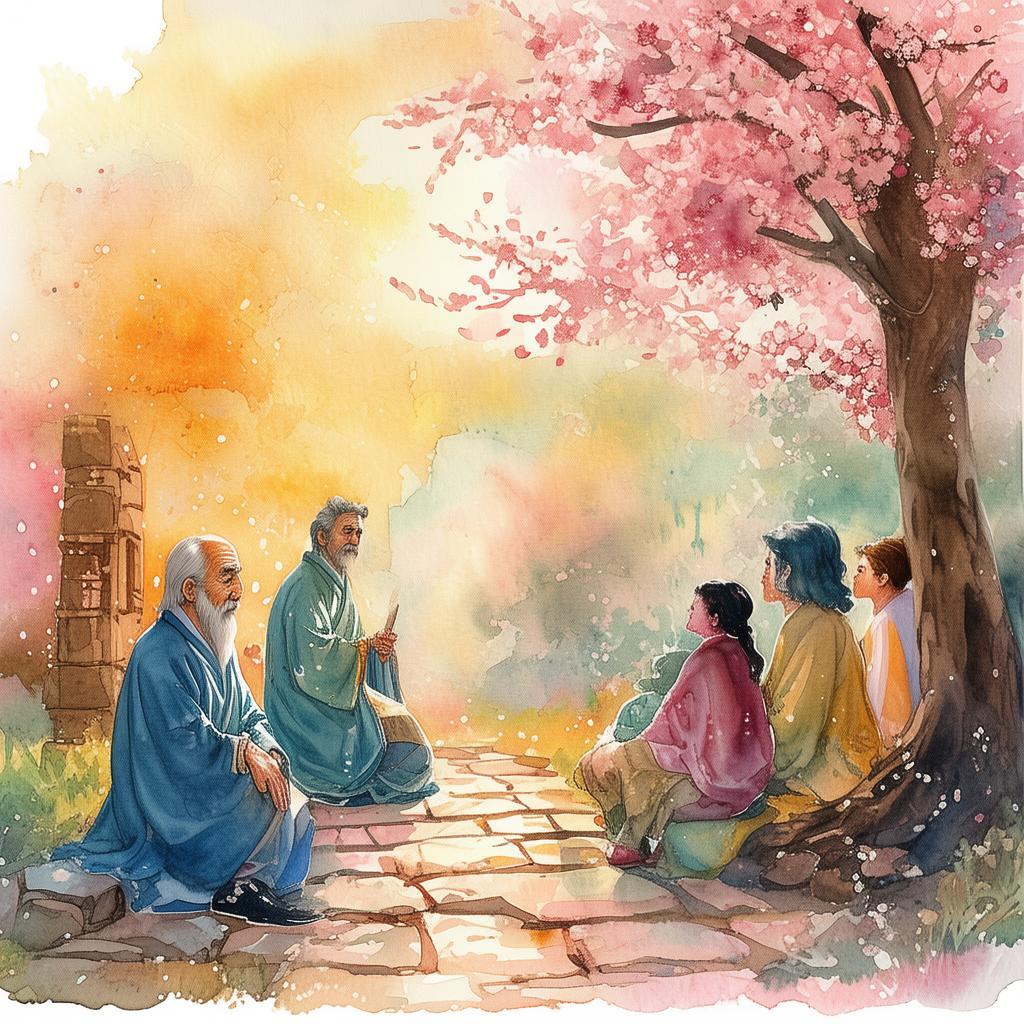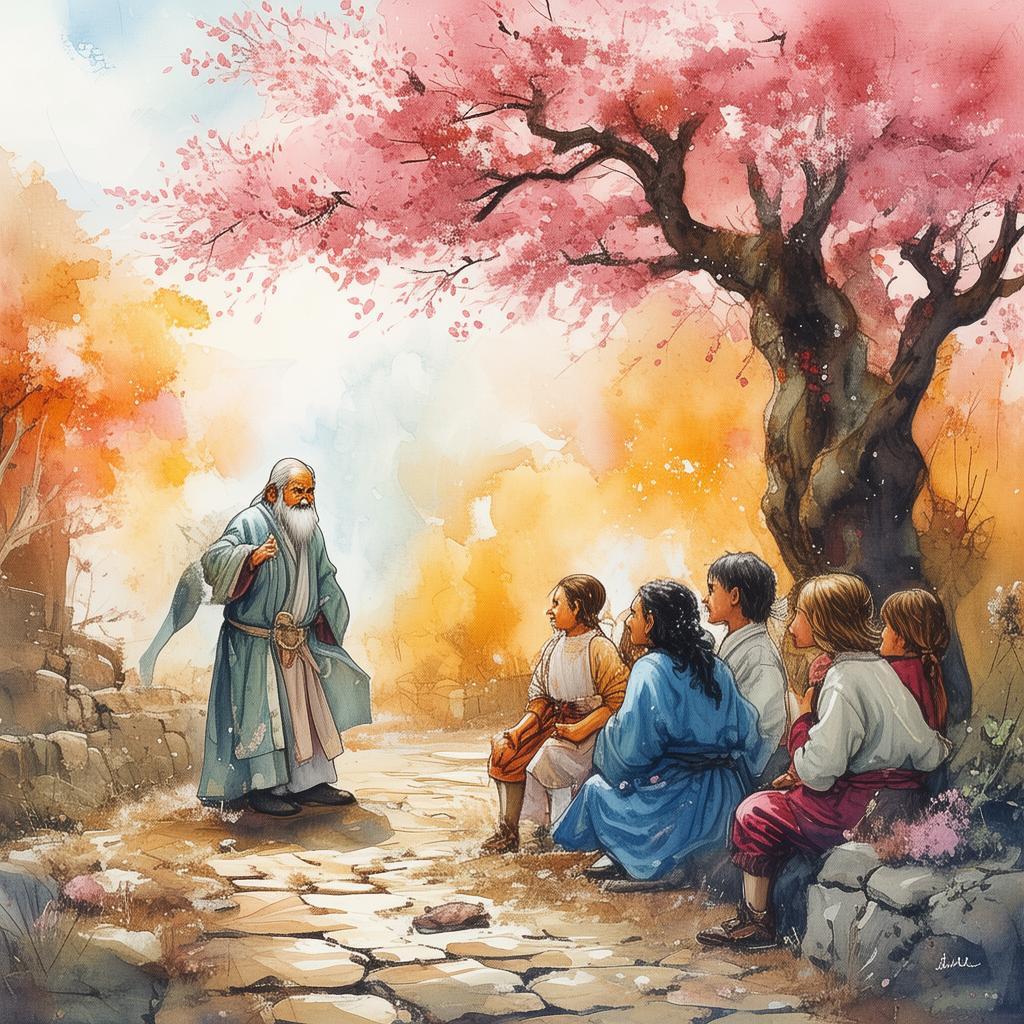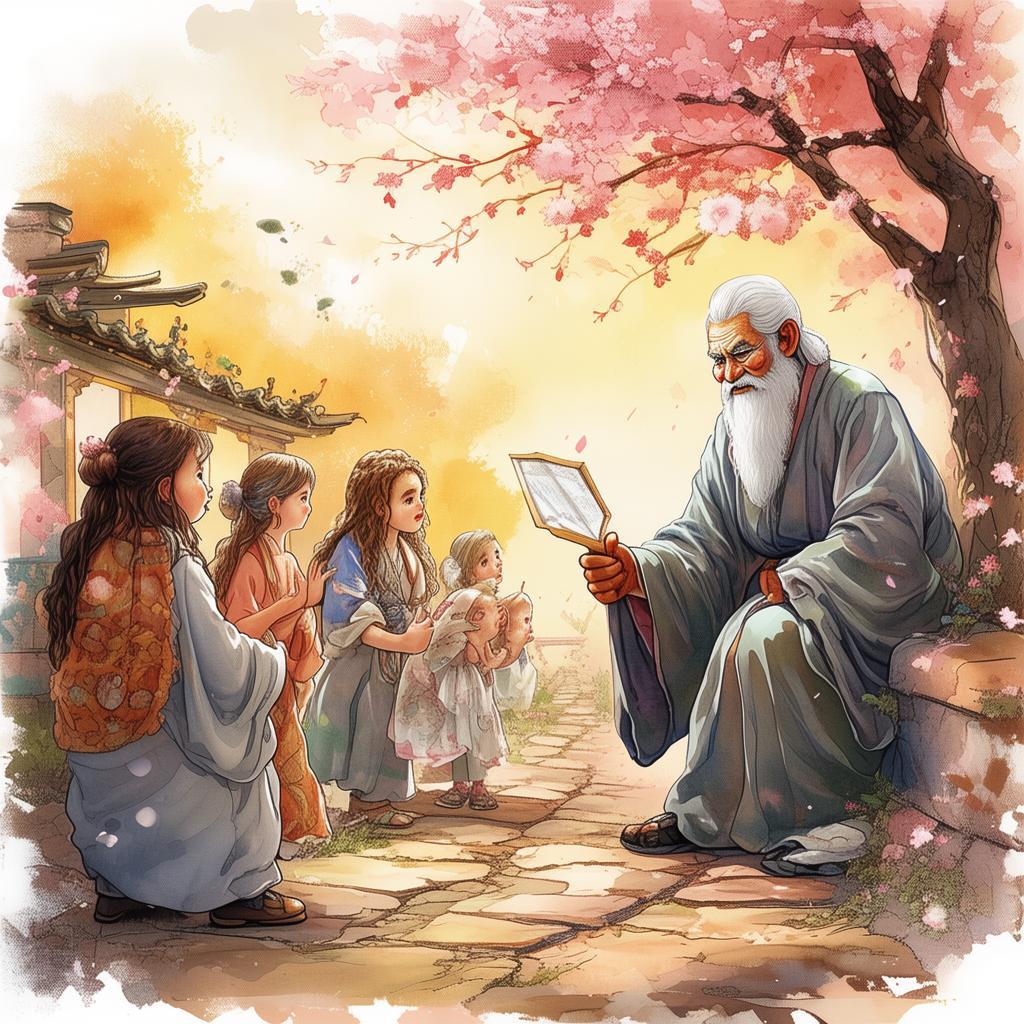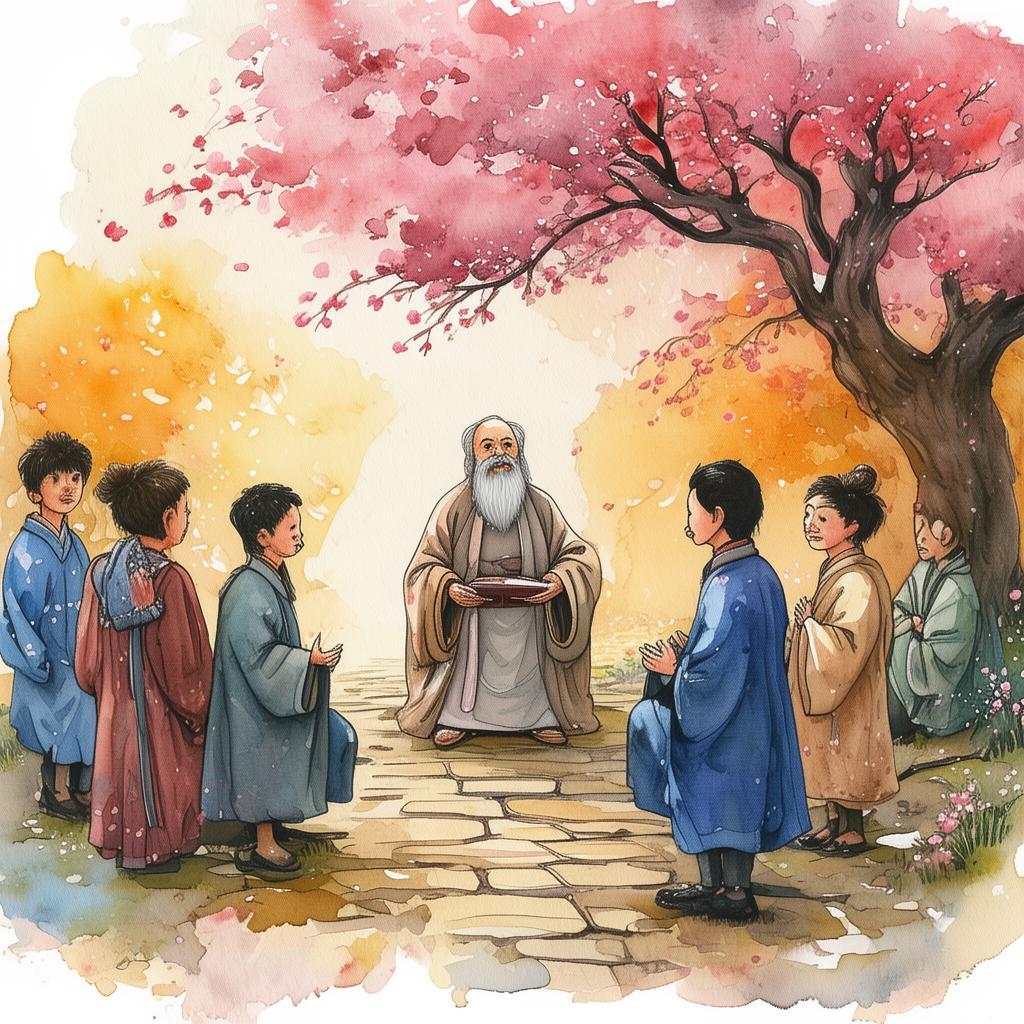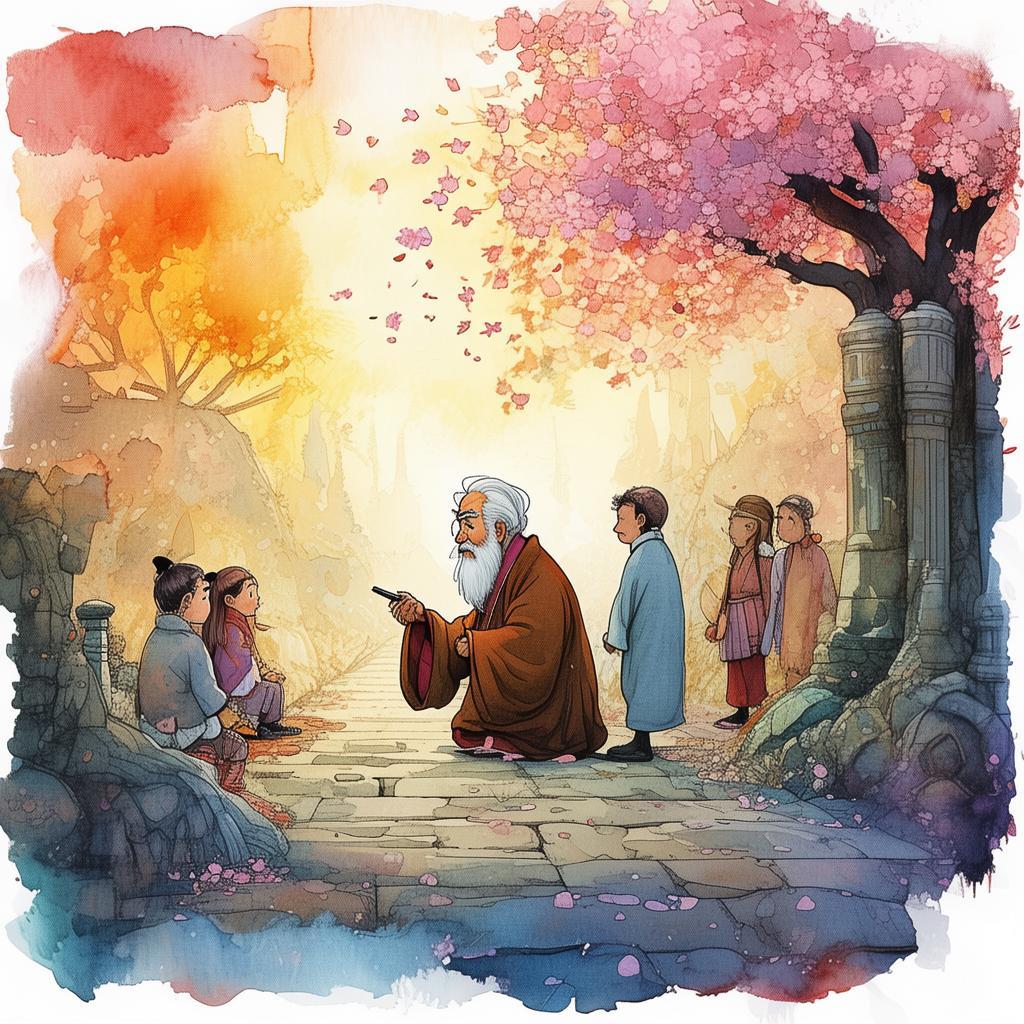The Calligrapher's Vow: A Tale of Loyalty and Redemption
In the heart of ancient China, where the ink was more than just a medium for writing, there lived a master calligrapher named Liang. His name was whispered in reverence by all who knew him, for his calligraphy was not merely an art but a reflection of the soul. His strokes were as delicate as a butterfly's wings and as bold as a warrior's sword.
Liang's story began on a fateful day when the king summoned him to the royal court. The kingdom was at peace, but whispers of a looming threat from a neighboring empire had reached the ears of the wise ruler. The king, with a heavy heart, requested that Liang inscribe a vow of loyalty on a scroll, a vow that would be displayed for all to see, a testament to the kingdom's resolve.
Liang's hands trembled as he dipped his brush into the ink. The words were simple yet profound: "I, Liang, the calligrapher, vow to protect the kingdom with my life and my art. If the ink runs dry, so does my loyalty."
The scroll was displayed prominently in the palace, and the kingdom felt a renewed sense of security. But Liang knew that the true test of his loyalty was yet to come.
Days turned into months, and the kingdom remained untouched by the neighboring empire's aggression. Liang's life was a tapestry of solitude, as he spent his days in the quiet of his study, perfecting his art. But the peace was fragile, and the shadows of war loomed ever closer.
One night, as Liang lay in his bed, a sudden knock at the door shattered the silence. It was a servant, breathless with urgency. "Master Liang, the king is in danger! The traitor has struck!"
Liang sprang from his bed, his heart pounding with a mix of fear and determination. He grabbed his brush and ink, vowing to use his art to save the king. As he raced through the palace, he realized that the ink that had once been a symbol of loyalty was now his weapon against the traitor.
In the grand hall, the traitor stood before the king, a man whom Liang had once considered a friend. The traitor's eyes were cold as he presented a forged scroll, a false vow of loyalty, meant to betray the kingdom.
Liang stepped forward, his brush in hand. "This ink is false, its spirit is not true," he declared, as he began to inscribe the truth on the floor. The words flowed effortlessly, the ink flowing like blood as he revealed the traitor's deceit.
The king, seeing the truth, ordered the traitor's arrest. But the act of revealing the traitor's treachery had not only exposed the traitor but had also endangered Liang's own life. The traitor's henchmen were on the prowl, and Liang knew that he had to escape.
With the help of a few loyal guards, Liang made his way to the city gates. But as he reached the threshold, the traitor's henchmen closed in, their swords gleaming with malice.
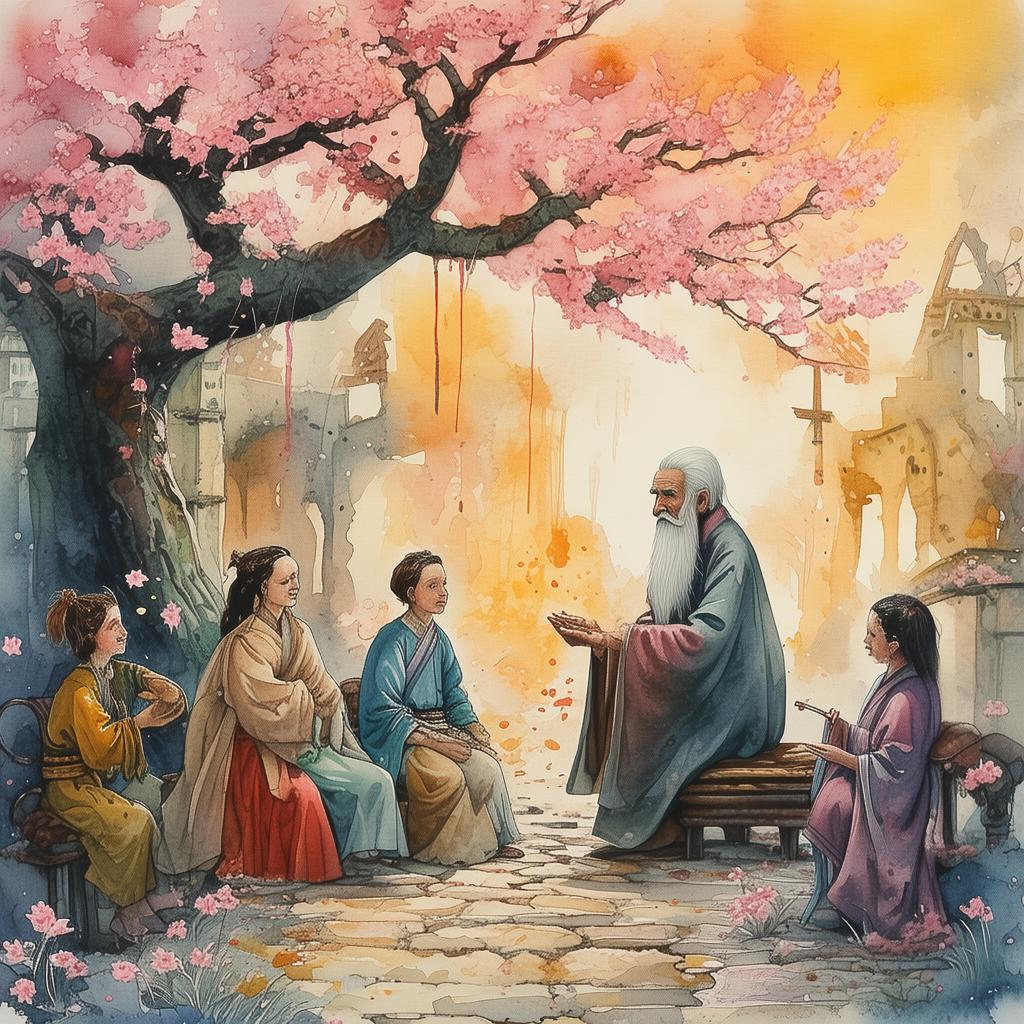
In a desperate bid to save himself and his kingdom, Liang turned to the ink that had once been his promise of loyalty. He dipped his brush into the inkwell and, with a final, desperate stroke, inscribed a message on the ground. The message was simple, yet powerful: "The ink of truth will always outlast the ink of deceit."
The henchmen, seeing the message, were taken aback. Liang's act of defiance had struck a chord in their hearts, and they hesitated. In that moment of hesitation, Liang and his guards fought their way to safety.
The kingdom was saved, and Liang's loyalty was once again confirmed. The king, grateful for Liang's bravery, granted him a pardon and a place in the royal council. But Liang knew that his journey was far from over.
He returned to his study, his brush in hand, and began to write a new chapter of his life. He wrote of the ink that had saved him, of the power of truth, and of the loyalty that had kept him alive. The ink flowed freely, and the words on the paper spoke of a man who had found redemption in the very ink that had once been his vow.
And so, Liang's story became a legend, a tale of loyalty and redemption that would be told for generations to come. The calligrapher's vow had been fulfilled, and the ink that had once been his promise had become his redemption.
✨ Original Statement ✨
All articles published on this website (including but not limited to text, images, videos, and other content) are original or authorized for reposting and are protected by relevant laws. Without the explicit written permission of this website, no individual or organization may copy, modify, repost, or use the content for commercial purposes.
If you need to quote or cooperate, please contact this site for authorization. We reserve the right to pursue legal responsibility for any unauthorized use.
Hereby declared.
